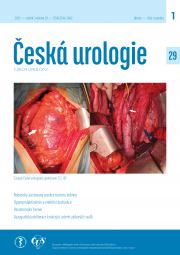Ces Urol 2009, 13(2):141-148 | DOI: 10.48095/cccu2009003
Development and clinical evaluation of new drugs
- 1 Oddělení klinické farmakologie FN, Plzeň
- 2 Urologická klinika LF UK a FN, Plzeň
- 3 Onkologické a radioterapeutické oddělení FN, Plzeň
The discovery and development of a drug is a process of many steps. The purpose of drug discovery is to identify chemicals that have a great chance of providing therapeutic benefit. Experiments designed to discover pharmacologic effect in patients have their fundamentals in the experimental data obtained from animals. Clinical experiments in humans classically are divided into at least three phases. Phase I presents first in man administration of study drugs. Phase II shows the response to treatment in patients with target disease state. The keystone to any drug development program and the gold standard of experimentation with drugs in humans is the randomized, controlled clinical trial. These trials (phase III) are designed to test whether a drug is efficacious in comparison to current standard therapy. Phase IV trial is also known as Post Marketing Surveillance Trial. Phase IV trials involve the safety surveillance (pharmacovigilance) of drug after it receives permission to be sold. In this paper are discussed some basic terms relating to drug development, pre clinical and clinical experiments.
Keywords: drug discovery, clinical experiments, randomisation, blinding, design, bioequivalency
Received: February 18, 2009; Accepted: March 23, 2009; Published: March 1, 2009
References
- Švihovec J. Vývoj a registrace nových léčiv. In: Lincová D, Farghali H. Základní a aplikovaná farmakologie. 1.ed. Praha: Galén 2002; 47-52.
- Strnadová V, Svobodník A, Křepelka F. Úvod do metodiky klinického hodnocení léků. 1. vyd. Praha: Grada Publishing 2007; 150 s.
- Kaztung B. Předklinické a klinické hodnocení léčiv. In: Katzung B. Základní a klinická farmakologie. 8 ed. Praha: H & H 2006; 73-83.
- Kriška M. Vývoj nového léku. In: Kriška M. a kol. Memorix klinickej farmakologie a liekov. 2.ed. Bratislava: SAP 2006; 55-61.
- Petr P, Kalová H. Nápady čtenáře klinických studií. Praktické lékárenství 2006; 6: 270-273.
- Perlík F. Klinické hodnocení účinků léčiv. In: Perlík F. Základy klinické farmakologie. 1. ed. Praha: Triton 1999; 90-98.
- Carruthers SG, Hoffman BB., Melmon KL, et al. Drug discovery and development. In: Melmond and Morrellis Clinical Pharmacology. 4 ed. New York: McGrawHill 2000; 1289-1306.
- Svobodník A, Coufal O, Dušek L. Základní pojmy v designu, analýze dat a interpretaci výsledků klinických hodnocení léčiv. Klinická onkologie 2005; 18(Suppl): 238-241.
- Tomášek J, Kiss I. Design klinické studie. Klinická onkologie 2005; 18(Suppl): 245- 249.
- Vetchý D, Rabišková M, Švarcová M, et al. Porovnání vybraných perorálních originálních a generických léků používaných v kardiologii na základě disoluční studie. Klin Farmakol Farm 2005; 19: 84-88.
- Vetchý D, Frýbortová K, Rabišková M, Daněčková H. Bioekvilalenční studie léčivých přípravků v České republice. Čas Lék čes 2007; 146: 431-433.
- Perlík F. Biologická dostupnost. In: Perlík F. Základy klinické farmakologie. 1. vyd. Praha: Triton 1999; 28-33.
- Perlík F. Etická problematika klinického hodnocení léků. In: Perlík F. Základy klinické farmakologie. 1. vyd. Praha: Triton 1999; 101-108.
- Demlová R. Výběr pacientů v klinických studiích - rizika pro interpretaci v běžné klinické praxi. Klinická onkologie 2005: 18(Suppl): 250-251.


